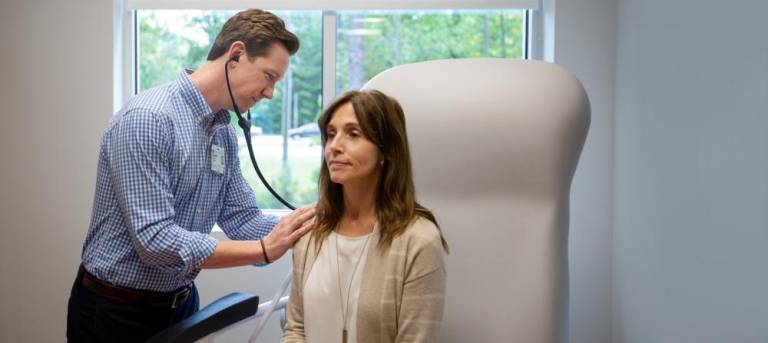Should you get an annual physical?
Health. Wellness visits are key to staying healthy, from the vaccines received as a child through the guidance of complex teen visits, and into family planning and STD screening for adults.

Even if you feel perfectly healthy, there’s still a reason to visit with your primary care doctor at least once a year.
Annual physicals create a health baseline and strengthens the patient-physician relationship.
“If we know you when you’re well, we’re going to be ready to provide the best care when you’re sick, and we may be able to prevent some illness altogether," says family physician Michael Fedewa.
The annual exam is most valuable when doctors can devote time to thoroughly discussing your medical history, chronic issues, and recommendations for lifestyle changes. If you have a new health concern, your doctor may suggest scheduling a follow-up visit in order to focus on diagnosing and treating that condition.
Wellness visits are key to staying healthy, from the vaccines received as a child through the guidance of complex teen visits, and into family planning and STD screening for adults. Annual physical exams also provide invaluable mental health and substance abuse counseling for all ages and promote longevity and health through cancer screening and heart disease risk reduction after age 50.
What to expect
At your annual check-up, your doctor will:
Check your vital signs. Recording your temperature, blood pressure, heart rate, and respiration rate create a baseline for your overall wellness.
Perform a physical exam. Visual inspection of your eyes, ears, and throat will help your doctor spot any potential issues. Lightly touching areas like your abdomen and back will accomplish this as well.
Update your vaccines. Depending on your age, you may need a new vaccine or a booster shot.
Ensure you get screenings you need. Are you due for a blood test, colonoscopy or bone density screening? Your physician will let you know and can coordinate tests.
Discuss new prevention and treatment recommendations. How you maintain your health changes over time. A yearly physical brings your care up-to-date.
Provide guidance on reducing your risk for disease. Your doctor can provide information and motivation to stop smoking, lose unhealthy pounds, or manage risk factors like high blood pressure.
Manage your medications. Your doctor will make sure your prescriptions, over-the-counter drugs, and supplements don’t interact with each other. They can also help you manage potential side effects.
“If we know you when you’re well, we’re going to be ready to provide the best care when you’re sick, and we may be able to prevent some illness altogether." --Michael Fedewa, family physician